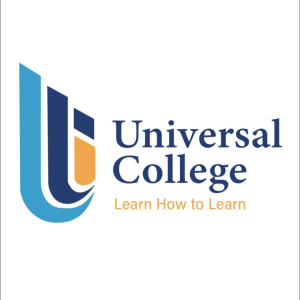Overview
BBM at Thames International College, Old Baneshwor, Kathmandu
The Bachelor of Business Management (BBM) at Thames International College operates under Tribhuvan University’s Faculty of Management. The program spans four years across eight semesters and totals 120 credits.
Internal evaluation carries 40% weight and semester-end examinations 60%. Students either complete a six-credit internship or a supervised project report in the final semester. Attendance of at least 80% is mandatory to be eligible for exams.
Highlights
-
Affiliation: Tribhuvan University (Faculty of Management)
-
Location: Old Baneshwor, Kathmandu (as listed by the college)
-
Duration and structure: 4 years, 8 semesters, 120 credits; internal 40% + external 60% evaluation; internship or project (6 credits); minimum 80% attendance
-
Entrance: CMAT with a minimum 40% to qualify for interview (FoM)
-
School: Offered through the School of Business & Management at Thames
Curriculum Details
FoM defines the BBM curriculum with four blocks: Business Tool courses (36 credits), Business Foundation (54 credits), Focus Area courses (15 credits), and Electives (9 credits).
Focus areas include Bank Operations and Cooperative Management, Sales and Marketing, Insurance and Risk Management, Entrepreneurship and Enterprise Development, and Accounting.
A course cycle lays out core subjects such as Foundation of Business Management, Financial Accounting, Business Mathematics, Business Research Methods, Legal Environment for Business in Nepal, Strategic Management, E-commerce, and Database Management.
Project or internship
Students either submit a Faculty-supervised project report (written report and presentation assessed by FoM) or complete an eight-week internship with organizational evaluation, report, and presentation. Both options carry 6 credits.
Assessment and eligibility
-
In-semester work counts for 40% (pre-board, class activities, projects, attendance and discipline).
-
Semester-end exams count for 60%.
-
Minimum internal GPA and attendance apply before exam eligibility.
Objectives
-
Build decision-making, leadership, and communication informed by economics and management.
-
Prepare students to manage functions in business organizations and to initiate ventures.
-
Provide structured exposure to Nepal’s financial, cooperative, and marketing contexts through focus areas.
Scope
Graduates enter roles in bank operations, cooperative management, sales and channel roles, risk and insurance support, and enterprise development. The program’s focus-area structure helps students align coursework with specific sectors in Nepal’s economy.
Learning Outcomes
-
Apply concepts from finance, accounting, marketing, operations, and business law to routine decisions.
-
Plan and present research or project work using FoM formats and evaluation criteria.
-
Communicate ideas clearly in reports and presentations and contribute in group settings.
-
Demonstrate professional conduct aligned with attendance and assessment policies.
Skill Development Modules
-
Quantitative and analytical: Business Mathematics I–II, Statistics, Financial Management.
-
Research and reporting: Business Research Methods, Project Report Writing option.
-
Sector exposure: Focus-area courses across banking, insurance, sales, entrepreneurship, and accounting.
-
Technology use: IT & Applications, Database Management, E-commerce fundamentals.
Teaching Methodology
FoM notes a student-centered approach with interactive lectures, presentations, case analysis, group work, and projects. Colleges follow semester guidelines and FoM-set formats for project or internship evaluation. Attendance of at least 80% is required.
Admission Requirements
-
Completed 10+2 or equivalent recognized by TU; minimum D+ in each subject in grades 11–12 with CGPA ≥1.80 or second division in 10+2/PCL.
-
CMAT covering verbal ability, quantitative ability, logical reasoning, and general awareness; at least 40% in CMAT to qualify for interview.
Career Opportunities
-
Entry roles: Banking operations assistant, cooperative officer trainee, sales executive, marketing coordinator, underwriting or claims support, enterprise development assistant.
-
Further study: MBS/MBA or sector credentials.
Scholarships and Financial Aid
Thames lists scholarship routes and fee-support options on its Admissions & Aid pages, including merit and need-based categories, a Full Tuition Waiver for eligible low-income students with government-school background, Early Bird support, and a Smart Saving Scheme. Check the college pages for current criteria and timelines.
Why Choose This Course?
-
TU-issued curriculum and evaluation with clear policies on internal/external weightage, attendance, and project/internship.
-
Old Baneshwor campus location with access to institutions and services.
-
Delivery within Thames’ School of Business & Management (program pages available online).
Conclusion
The TU-affiliated BBM at Thames follows published FoM rules and structures. Students gain sector-oriented coursework, a defined project or internship, and transparent assessment standards—useful for those planning careers in banking, sales, insurance, entrepreneurship, or further study.
FAQ
Q1. How many credits are in the BBM?
120 credits across eight semesters.
Q2. Is the internship mandatory?
You complete either a six-credit internship or a six-credit project report in Semester VIII.
Q3. What CMAT score is required?
At least 40% to qualify for interview.
Q4. What happens if attendance falls below 80%?
Students who attend less than 80% of classes cannot sit the semester-end exams.
Q5. Where can I confirm current scholarship routes?
See Thames’ Admissions & Aid pages for live categories and requirements.






















